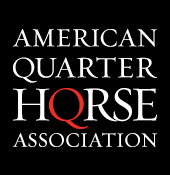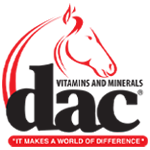Bills in the Texas legislature aim to take 50 percent of money raised from sale of specialty license plates.
There are more than 180 specialty license plates currently available for purchase from the Texas Department of Motor Vehicles, and that includes a license plate that recognizes the American Quarter Horse. The majority of plates were developed specifically to benefit agencies and charities around the state.
Revenue from specialty license plates gives nonprofits a wonderful opportunity to better the community: The American Quarter Horse specialty plate, for example, helps fund some programs through the American Quarter Horse Foundation; BikeTexas uses specialty license plate revenue to leverage grants for Safe Routes to School programs benefiting thousands of elementary and middle school-aged children; and the March of Dimes’ Birth Defects Registry receives specialty license plate revenue.
However, House Bill 1 and Senate Bill 1278 in the Texas legislature plan to take 50 percent of all annual specialty-plate revenue to whittle down the state’s $23 billion budget deficit. In 2010, revenue of approximately $16,330,000 was collected from the sale of specialty license plates in Texas, according to a press release from BikeTexas, an organization that promotes bicycle and pedestrian safety.
What the bill authors don’t realize is that out of the $16,330,000 total specialty plate revenue, highway and general funds already received about $10,811,000, according to the press release. Also, a private vendor firm, My Plates, received $2,740,624 in 2010 in commission. Since My Plates commissions are probably protected by a contract with the state, this leaves only $2,779,000 to agencies and charities available as a target to budget writers.
“We are relying on the income generated from lovers of American Quarter Horses to boost these programs and do not support reallocating any portion of this income for state affairs,” said Chris Sitz, senior director of the American Quarter Horse Foundation.
AQHA Executive Director of Competition and Breed Integrity Tom Persechino also pointed out that AQHA – and other horse-industry groups – recently supported an initiative that would add about $1 billion a year in tax revenue and create more than 77,000 Texas jobs across a wide variety of sectors without taking anything away from charitable organizations.
Buyers of the plates have done so with the knowledge that the majority of the revenue will fund the arts, animal spaying and neutering, or many other worthy causes buyers personally care about, said BikeTexas’ Robin Stallings. If buyers cannot trust where the money is going then future specialty plate sales will suffer, resulting in less money for valuables.
The specialty plate revenue will hardly balance the budget, Stallings added. Since agencies and charities only receive about $2,779,000, based on the 2010 statistics, and the bill proposes to take 50 percent of the revenue, the state would receive a little more than $1 million annually. This amount is a mere drop in the bucket to balance Texas’s budget, yet many agencies and charities will be devastated by losing this funding. Texas will be worse for it.







